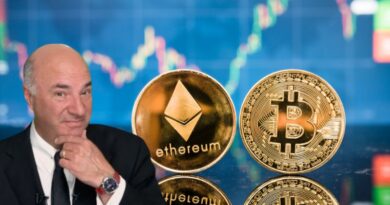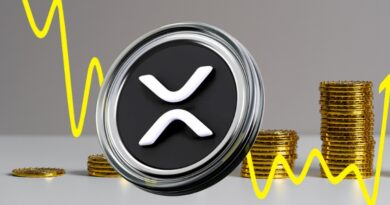Franklin Templeton Faces Regulatory Delay in XRP ETF Listing
Franklin Templeton’s XRP ETF Hits Regulatory Roadblock
When financial giant Franklin Templeton expressed interest in launching an XRP-based exchange-traded fund (ETF), many in the crypto and investment world took notice. It’s not every day that a major asset manager moves toward something tied to one of the most talked-about cryptocurrencies—XRP. But as with many crypto-related financial products, regulations can slow things down.
So, what happened? And what does this mean if you follow crypto or are thinking about investing in an XRP ETF?
Let’s break it down.
What Is Franklin Templeton Trying to Do?
Franklin Templeton is a well-known investment firm. They manage billions of dollars across stocks, bonds, mutual funds, and ETFs.
Recently, they filed with the U.S. Securities and Exchange Commission (SEC) to list an XRP ETF. That means investors would be able to buy shares of a fund that tracks the price of XRP—the digital currency created by Ripple Labs.
This isn’t Franklin Templeton’s first foray into crypto. They already offer a Bitcoin ETF, which launched earlier in 2024. So, moving into XRP might seem like the natural next step.
But this time, there’s a hitch.
Regulatory Delay Throws a Wrench in the Plans
The SEC isn’t moving quickly. The agency has delayed its decision on the application, citing the need for more time to evaluate the proposal. Instead of approving or rejecting the XRP ETF, they’ve pushed the deadline for public comments and a final decision further down the road.
Here’s what this delay means in simpler terms:
- No XRP ETF—for now. Investors eager to gain exposure to XRP through traditional markets will have to wait.
- The SEC wants more input. They’ve opened the floor for public comments to hear different viewpoints on the proposal.
- Timeline extended. It could be several more months before any approval or denial is made.
This kind of delay isn’t unusual, especially when it comes to crypto-related products. The SEC has historically been cautious with anything involving cryptocurrencies.
Why the SEC Might Be Hesitating
You might be wondering—why the holdup?
The SEC has several concerns when it comes to crypto ETFs:
- Market manipulation. They want to make sure XRP’s price isn’t easily manipulated, which would pose risks to investors.
- Lack of regulation in crypto markets. Many crypto exchanges operate outside the U.S. or without strict oversight.
- Previous legal battles. Ripple, the company behind XRP, has had a long legal tussle with the SEC. Though parts of the case have favored Ripple, the legal uncertainty might still weigh into their decision.
Put simply, the SEC is being careful—and that caution means delays.
What Is XRP, and Why Does It Matter?
XRP is the digital token used by Ripple Labs, a company that focuses on cross-border payments. Unlike Bitcoin, XRP wasn’t created to be a decentralized currency. Instead, it aims to improve how money is transferred between financial institutions.
Think of it this way:
If you’ve ever had to send money overseas, you know it can take days and sometimes comes with high fees. Ripple’s network, powered by XRP, wants to fix that by making transfers faster and cheaper.
And that’s why some investors see XRP as valuable—especially if more banks start using it in the future.
The Bigger Picture for Crypto ETFs
Franklin Templeton isn’t the only player in this space. Other asset managers are also looking to create crypto ETFs for coins like Ethereum, Solana, and yes, XRP.
What’s interesting is that while Bitcoin ETFs have already hit the market, ETFs for other cryptocurrencies are struggling to get the green light.
Why? Because each crypto token is different:
- Bitcoin is often seen as more established, almost like “digital gold.”
- Ethereum has smart contracts and powers most decentralized apps.
- XRP is tied closely to a private company—Ripple—giving it a different profile altogether.
This makes it harder for regulators to treat all tokens the same.
Could This Delay Mean Better Long-Term Outcomes?
At first glance, the delay might seem like a setback. But let’s look at it from a different angle.
When regulators take more time to evaluate something, it often leads to stronger, more secure products. This can mean:
- Better investor protections. You want to know your money is safe, right?
- Clearer rules for everyone. When the rules are clear, more companies feel comfortable entering the space.
- More confidence in the ETF. A well-regulated XRP ETF could attract both retail and institutional investors.
So while there’s a wait, it could lead to a more trusted investment vehicle down the line.
What Should You Do as an Investor?
If you’ve been eyeing crypto ETFs as a way to diversify your portfolio, here are a few things to think about:
- Stay informed. Watch for updates from the SEC and Franklin Templeton. Deadlines may shift, and news can break quickly.
- Consider other options. While the XRP ETF is delayed, there are other crypto ETFs already on the market—mainly for Bitcoin.
- Do your homework. Understand what XRP is, how it works, and what risks come with it. Crypto is different from stocks or bonds, so it’s important to research before investing.
Ask yourself: Are you comfortable with the volatility and regulatory uncertainty in the crypto space? If the answer is yes, the XRP ETF—once launched—could be worth exploring.
How Long Could the Delay Last?
Good question. Right now, there’s no exact timeline.
The SEC typically takes 240 days from the initial filing to make a final decision. But they often use every bit of that time. In many cases, proposals go through multiple rounds of comment periods and deadline extensions.
So you’re likely looking at a decision sometime later this year—or even early next year.
In the meantime, industry experts will be watching closely. So should you.
Why All Eyes Are on XRP
Unlike Bitcoin or Ethereum, XRP sits in a unique spot. It’s connected to financial institutions, has seen its fair share of courtroom drama, and yet, remains one of the top cryptocurrencies by market cap.
If an XRP ETF gets approved, it could open the door for more crypto funds. And that could:
- Attract traditional investors. People who aren’t comfortable holding crypto directly might prefer ETF exposure.
- Boost XRP’s visibility. Increased demand for the token might follow if more institutions join in.
- Set a precedent. Approval would signal that the SEC is warming up to altcoin ETFs beyond Bitcoin.
So while this is just one fund from one company, the ripple effects (no pun intended) could be big.
The Bottom Line
Franklin Templeton’s proposed XRP ETF is facing delays, but that doesn’t mean it’s off the table. The SEC is simply taking its time to evaluate and collect feedback.
For investors, especially those keeping an eye on cryptocurrency ETFs, now is the time to stay alert, ask questions, and understand what’s at stake.
Will XRP join Bitcoin in the ETF world soon? Only time—and the SEC—will tell.









